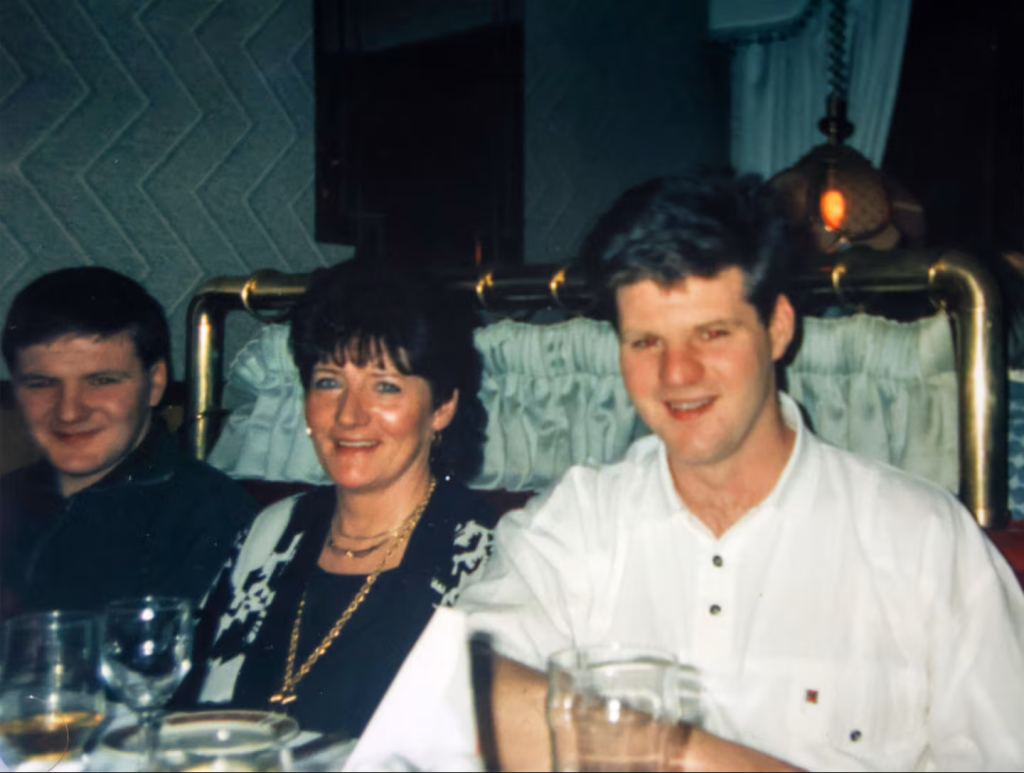Supreme Court Hearing on ‘Neither Confirm Nor Deny’ Policy: A landmark case for state secrecy
June 11, 2025This Wednesday (11 June) the UK Supreme Court will hear the Secretary of State for Northern Ireland’s appeal against a Coroner’s decision to disclose a gist of information in the inquest into the 1994 sectarian murder of Paul ‘Topper’ Thompson by loyalist paramilitaries in Belfast, in which there is suspected state collusion.
The Secretary of State for Northern Ireland’s appeal is supported by four government departments – the Ministry of Defence, Home Office, Foreign, Commonwealth & Development Office (FCDO), and Advocate General. The appeal follows earlier rulings by the Northern Ireland High Court and Court of Appeal, in favour of disclosure to the Thompson family.
This landmark case raises critical questions about the “Neither Confirm Nor Deny” (NCND) policy used by the Government to prevent disclosure of information on national security grounds.
CAJ, Amnesty International and Relatives for Justice (RFJ) have said that NCND is often used to conceal state culpability in human rights violations.
Amnesty International have issued a stark warning that state secrecy continues to block truth and accountability in legacy cases, prolonging the suffering of victims’ families and undermining the rule of law.
Speaking ahead of the hearing, Eugene Thompson, Paul Thompson’s brother, who is gravely ill, said:
“I’ve fought for decades for the truth of what happened to Paul. The Government should not be fighting against the answers we need. I would have liked to attend court in person to fight for justice for Paul, but my health won’t allow me. I know family will be there. This should have been resolved a long time ago. Government’s repeated delay and blocking tactics mean we are still fighting; it should not have to come to this.”
Before her passing, Paul and Eugene’s mother, Margaret Thompson, travelled to the House of Commons to seek a public inquiry into her son’s murder. Eugene added:
“My mum started our family’s fight for justice over 31 years ago and has since passed away. I hope that the UK Supreme Court will help bring closure.”
Daniel Holder, Director of the Committee on the Administration of Justice (CAJ), solicitors for the family, stated:
“Eugene and his family have long sought justice and truth regarding Paul’s murder but have been met by repeated delay and obstruction. An effective investigation has never taken place, and an inquest has never been completed, 31 years on. This case has wide implications for numerous bereaved families and the rule of law. National security cannot surely be invoked to conceal state wrongdoing or the involvement of state agents in killings or other human rights violations.”
Gráinne Teggart, Northern Ireland Deputy Director of Amnesty International UK, said:
“This case is crucial regarding state secrecy on legacy issues and highlights everything wrong with the UK’s approach – a government more focused on protecting itself than delivering truth. It exposes a culture of obstruction where even a seriously ill brother’s plea and three court rulings are insufficient to compel transparency. The government’s obsession with secrecy continues to override accountability, and families are paying the price.
“The Thompson case epitomises the failings of the UK’s legacy approach; a grim blueprint of how state secrecy, endless delay, and institutional obstruction continue to deny victims’ families their rights. It starkly reveals the imbalance of power: a family seeking answers against a government closing ranks to protect itself from scrutiny.
“It is bitterly disappointing that Government still seeks to deny truth to victims’ while claiming commitment to delivering an agreed way forward on legacy”
Irati Oleaga, Relatives for Justice, said:
“Paul Thompson’s life mattered. So does the truth about his death. And so does the courage of those who have never stopped demanding it. We stand with Eugene. With his mum Margaret, whose absence is deeply felt. And with the many other families still denied truth, justice, and acknowledgement. Their persistence in the face of delay, denial, and deliberate obstruction is a testament to the strength of human dignity.”
Reyhan Yalcindag Baydemir, Vice President of the International Federation of Human Rights (FIDH), who will attend the hearing as an international observer said:
“Justice is the only way forward for victims of human rights violations. Denying access to information about a murder not only obstructs the right to truth and accountability, but also violates the dignity of the victims and the memory of those who were killed. The British Government must live up to its responsibilities and fulfil its international obligations by ending the practice of state secrecy, which undermines the Rule of Law and perpetuates impunity for past wrongdoings.”
ENDS
Notes:
Link to case: In the matter of an application by the Secretary of State for Northern Ireland for Judicial Review (UK Supreme Court, 11-12 June 2025)
